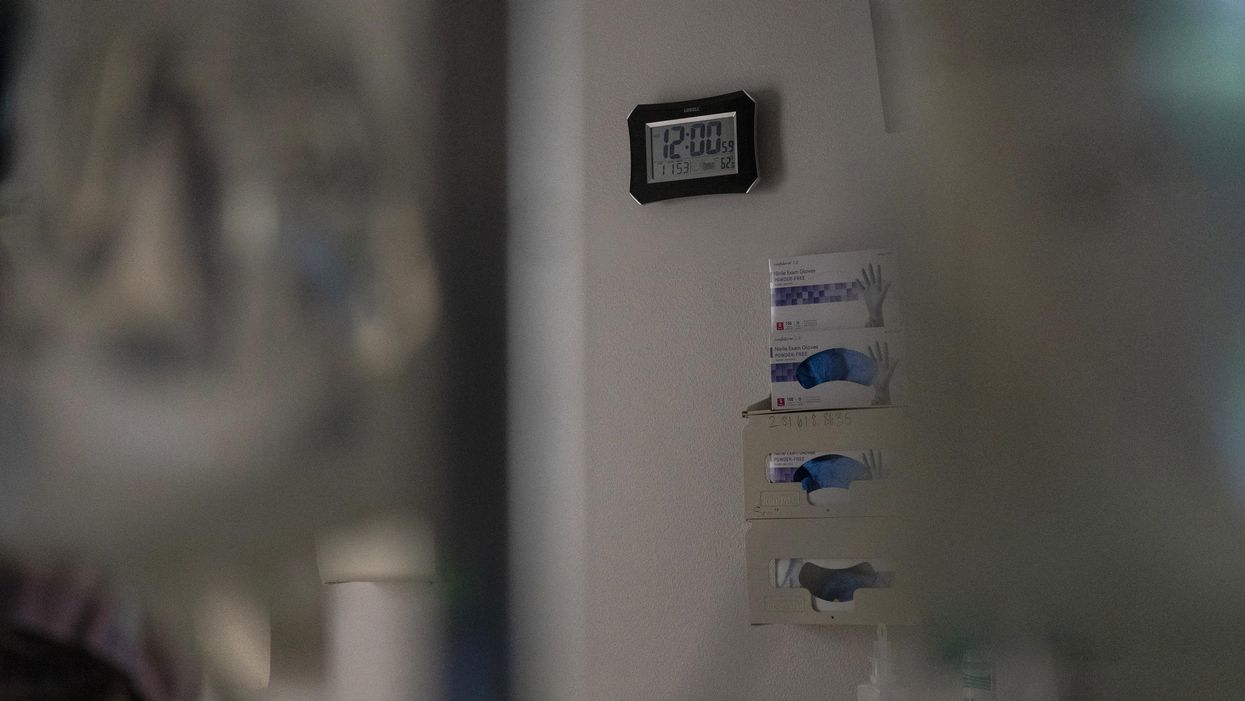
Photo by Go Nakamura/Getty Images

Horrific
All patients in an Egypt intensive care ward died on Saturday after the hospital ran out of oxygen, according to various reports from the U.K.'s Daily Star, the Middle East Eye, Egypt Today, and more.
The Egyptian government, however, tells a different story and says the reports are false.
The deaths reportedly took place at the El Husseiniya Central Hospital in Egypt's Ash Sharqia province, and footage purported to be taken from the scene has gone viral on social media.
The Daily Star reported that "every single patient on a coronavirus emergency ward died due to a lack of hospital oxygen."
"Video clips uploaded to social media show hospital staff desperately trying to perform CPR on dying patients while the sounds of screaming and crying can be heard echoing through the ward," the outlet said, pointing out that "up to seven patients died after the ICU's oxygen levels almost dipped below two percent, meaning there was neither sufficient pressure nor air for them to survive."
The outlet reported that government negligence and corruption are being blamed for the deaths.
Social media user Ahmed Shalaby shared video purported to be from the hospital, writing, "Another heartbreaking Scene, An Egyptian physician collapsed after all COVID-19 patients in the ICU had died due to lack of Oxygen that the PPE she's wearing aren't enough for the frontline health workers."
In the video, hospital staff can also be seen rushing around, apparently attempting to revive patients.
In response to the outcry, Egypt Health Minister Hala Zayed said that the patients did not die from a lack of oxygen, and instead said that the Muslim Brotherhood was simply spreading rumors.
Further, hospital director Dr. Muhammad Sami Al-Najjar reportedly told local media that the situation at the hospital is stable and "normal" and said that there is no oxygen shortage. Sami Al-Najjar also added that the ICU patients all died from natural causes, old age, or other chronic illnesses.
Dr. Mamdouh Ghorab, governor of Ash Sharqia, said that it was just four patients that died. He has reportedly called for hospital security guards to be punished for allowing visitors to film inside the intensive care ward.
"Oxygen is available in the Husseiniya Hospital," Ghorab said, according to Egypt Today. "Only four cases were on ventilators. The death was natural as a result of the deterioration of their condition because of the infection with the Coronavirus and their chronic diseases."
Local MP Sayed Rahmo fired back at Ghorab's claims and said, "The patients died as a result of negligence at the al-Husseiniya hospital and the mismanagement of the oxygen shortage crisis. According to my sources, the intensive care doctor informed the hospital director about the shortage of oxygen supply at least an hour [before the catastrophe]."
The Daily Star noted that there have been "unconfirmed reports that the man who recorded the footage has since been arrested," and the Middle East Eye said that the person who filmed the scenes "was summoned by Egyptian police for questioning" on Monday.
The Times of Israel reported that Egypt has launched an investigation into the ICU deaths.
"The prosecutor's office in Al-Husseiniya (in the northern Sharqiya province) summoned the director of Al-Husseiniya hospital to question him over the deaths of four people due to lack of oxygen," a judicial source said according to the outlet.
According to a report from the New York Times, the government is adamant that neither shortages nor negligence caused the deaths in the ICU.
The Ministry of Health on Sunday released a statement confirming the deaths of four patients at the El Husseiniya Central Hospital.
"[The patients] died at different times; most of them were elderly people with chronic illnesses who suffered from complications as a result of their infection with the coronavirus, which led to the deterioration of their health and their death," the statement explained.
Further, the statement from the Ministry of Health pointed out that there were at least "a dozen other patients in the hospital," according to the Times, which included newborns in incubators who were reportedly set up with access to the same oxygen network and who were not affected.
This, according to the ministry, confirms "the lack of a connection between the deaths and allegations made about a shortage of oxygen."
The Times report pointed out, however, that "medical experts and analysts say there is no way to know exactly what happened because people are too scared to risk criticizing the government."
"In the early months of the crisis, doctors who complained about overstretched hospitals were thrown in jail," the report added.
"The government perceives the idea of saying there's a shortage of anything like oxygen or PPE or breathing machines as sensitive information and a matter of national security," Ayman Sabae, a researcher at the Egyptian Initiative for Personal Rights, said according to the outlet. "Maybe there is no oxygen shortage, but then again the body that has been conducting the investigation is the ministry, which is also managing the hospitals, which is a reason for skepticism. There is a problem of credibility."
According to the Middle East Eye, this incident is reportedly the second of its kind.
The first reportedly took place at Zefta General Hospital just hours before the deaths at the Husseiniya hospital.
You can read more about that incident here.